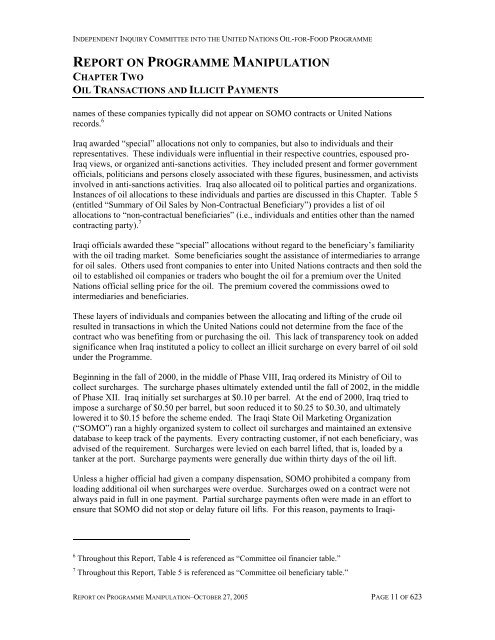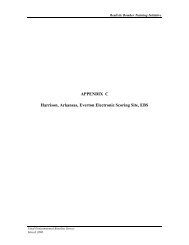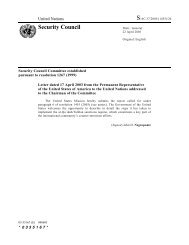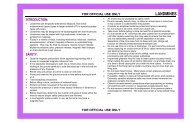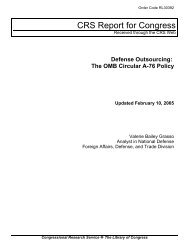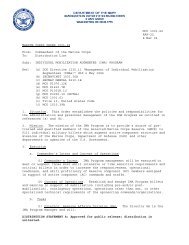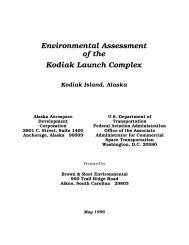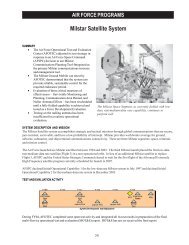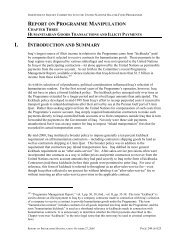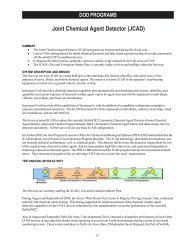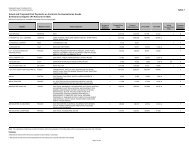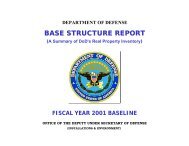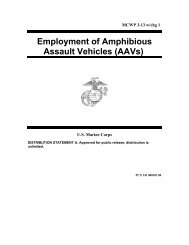report on programme manipulation - Independent Inquiry Committee
report on programme manipulation - Independent Inquiry Committee
report on programme manipulation - Independent Inquiry Committee
You also want an ePaper? Increase the reach of your titles
YUMPU automatically turns print PDFs into web optimized ePapers that Google loves.
INDEPENDENT INQUIRY COMMITTEE INTO THE UNITED NATIONS OIL-FOR-FOOD PROGRAMME<br />
REPORT ON PROGRAMME MANIPULATION<br />
CHAPTER TWO<br />
OIL TRANSACTIONS AND ILLICIT PAYMENTS<br />
names of these companies typically did not appear <strong>on</strong> SOMO c<strong>on</strong>tracts or United Nati<strong>on</strong>s<br />
records. 6<br />
Iraq awarded “special” allocati<strong>on</strong>s not <strong>on</strong>ly to companies, but also to individuals and their<br />
representatives. These individuals were influential in their respective countries, espoused pro-<br />
Iraq views, or organized anti-sancti<strong>on</strong>s activities. They included present and former government<br />
officials, politicians and pers<strong>on</strong>s closely associated with these figures, businessmen, and activists<br />
involved in anti-sancti<strong>on</strong>s activities. Iraq also allocated oil to political parties and organizati<strong>on</strong>s.<br />
Instances of oil allocati<strong>on</strong>s to these individuals and parties are discussed in this Chapter. Table 5<br />
(entitled “Summary of Oil Sales by N<strong>on</strong>-C<strong>on</strong>tractual Beneficiary”) provides a list of oil<br />
allocati<strong>on</strong>s to “n<strong>on</strong>-c<strong>on</strong>tractual beneficiaries” (i.e., individuals and entities other than the named<br />
c<strong>on</strong>tracting party). 7<br />
Iraqi officials awarded these “special” allocati<strong>on</strong>s without regard to the beneficiary’s familiarity<br />
with the oil trading market. Some beneficiaries sought the assistance of intermediaries to arrange<br />
for oil sales. Others used fr<strong>on</strong>t companies to enter into United Nati<strong>on</strong>s c<strong>on</strong>tracts and then sold the<br />
oil to established oil companies or traders who bought the oil for a premium over the United<br />
Nati<strong>on</strong>s official selling price for the oil. The premium covered the commissi<strong>on</strong>s owed to<br />
intermediaries and beneficiaries.<br />
These layers of individuals and companies between the allocating and lifting of the crude oil<br />
resulted in transacti<strong>on</strong>s in which the United Nati<strong>on</strong>s could not determine from the face of the<br />
c<strong>on</strong>tract who was benefiting from or purchasing the oil. This lack of transparency took <strong>on</strong> added<br />
significance when Iraq instituted a policy to collect an illicit surcharge <strong>on</strong> every barrel of oil sold<br />
under the Programme.<br />
Beginning in the fall of 2000, in the middle of Phase VIII, Iraq ordered its Ministry of Oil to<br />
collect surcharges. The surcharge phases ultimately extended until the fall of 2002, in the middle<br />
of Phase XII. Iraq initially set surcharges at $0.10 per barrel. At the end of 2000, Iraq tried to<br />
impose a surcharge of $0.50 per barrel, but so<strong>on</strong> reduced it to $0.25 to $0.30, and ultimately<br />
lowered it to $0.15 before the scheme ended. The Iraqi State Oil Marketing Organizati<strong>on</strong><br />
(“SOMO”) ran a highly organized system to collect oil surcharges and maintained an extensive<br />
database to keep track of the payments. Every c<strong>on</strong>tracting customer, if not each beneficiary, was<br />
advised of the requirement. Surcharges were levied <strong>on</strong> each barrel lifted, that is, loaded by a<br />
tanker at the port. Surcharge payments were generally due within thirty days of the oil lift.<br />
Unless a higher official had given a company dispensati<strong>on</strong>, SOMO prohibited a company from<br />
loading additi<strong>on</strong>al oil when surcharges were overdue. Surcharges owed <strong>on</strong> a c<strong>on</strong>tract were not<br />
always paid in full in <strong>on</strong>e payment. Partial surcharge payments often were made in an effort to<br />
ensure that SOMO did not stop or delay future oil lifts. For this reas<strong>on</strong>, payments to Iraqi-<br />
6 Throughout this Report, Table 4 is referenced as “<strong>Committee</strong> oil financier table.”<br />
7 Throughout this Report, Table 5 is referenced as “<strong>Committee</strong> oil beneficiary table.”<br />
REPORT ON PROGRAMME MANIPULATION–OCTOBER 27, 2005 PAGE 11 OF 623


